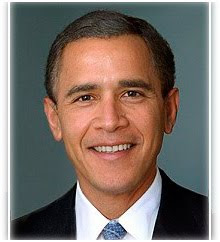Published on Thursday, June 28, 2012 by Common Dreams
Both inside and outside of the US Congress, advocates of a single payer 'Medicare for All' approach to health care see the Supreme Court's ruling on the Affordable Care Act, also known as Obamacare, as an opportunity to voice their continued support for the only solution they say will work to cover all Americans while also bringing down costs. Regardless of what the high court announces on Thursday, they vow to continue their fight despite the political roadblocks in their path.Obamacare or Not, Progressives Vow Fight for 'Medicare for All'
Members of congress and citizens groups will not let Supreme Court interupt fight for 'real solution' to health care crisis
"It's easy to see it's a good idea," Rep. Keith Ellison (D-Minn.), co-chairman of the Congressional Progressive Caucus, told the Huffington Post on Wednesday, the day before the court's decision. "It's the cheapest way to cover everybody."
Asked by the HuffPo's Jennifer Bendery why progressives in Congress think a single-payer option could advance this time around, Ellison said if the court strikes down some or all of the existing health care law, it will show that the individual mandate was a failed approach. "We've tried it the right-wing way. Let's try it the right way," he said.
In Vermont, where Democratic Gov. Peter Shumlin has championed a state-level single-payer system which would cover all Vermonters under a GreenMountainCare plan, efforts may be impacted by the SCOTUS decision, but they will not be derailed.
Talking to Vermont Public Radio, Shumlin said that the court's decision, regardless of outcome, would not thwart his state's quest for a single payer model. "Vermont is going to continue to pursue the smartest, universal single payer health care system in America that spends less money on health care contains the rate of growth," said Shumlin. "So that we can have our companies and middle class Vermonters invest in other things like their kids education, groceries, sneakers for the kids, hiring new employees."
Citing other countries with more socialized health care models that cover all citizens and spend "two to three hundred percent less" than the US per capita, Shumlin argued against any further entanglements with the private insurance industry. "Forget the Supreme Court," he said.
Oliver Hall, an attorney who filed an amicus brief with the court on behalf of single payer advocacy groups argues that the US already has examples of such systems in the US and says they work great.
“Those are Medicare and the Veterans Administration,” Hall told the website Single Payer Action. “Single payer is possible. It’s already happening in the United States. And that rebuts the primary tenet of the government’s contention in this case – which is that it cannot successfully regulate the health care market unless it has the power to require every American to buy private insurance. That is simply not the case. And Medicare and the Veterans Administration prove it.”
















